Posted on 3/28/2024
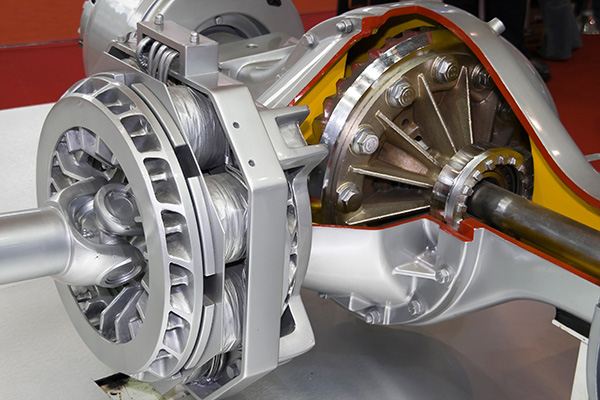
Have you ever wondered what makes your car turn smoothly around corners or navigate effortlessly through varying road conditions? Behind the scenes, there's a crucial component working tirelessly to ensure your vehicle's stability and maneuverability - the differential. Unraveling the Mystery: What Exactly is a Differential? The differential is a mechanical device that facilitates the rotation of your car's wheels at varying speeds while ensuring road grip. It is located within the axle assembly and plays a crucial role in distributing power from the engine to the wheels. This allows the wheels to turn at different speeds as required, especially during cornering. Why Does Your Car Need a Differential? The setup may work acceptably on a straight road when driving a car in a straight line with all wheels rotating at the same speed. However, encountering corners or uneven surfaces presents a problem. Without a differential, the whee ... read more
Posted on 2/26/2024
.jpeg)
The dashboard of your car is like a communication hub, providing vital information about the vehicle's health and status through various symbols and lights. While some dashboard lights, like the seatbelt reminder or the fuel indicator, are instantly recognizable, there are others that are less common and can be somewhat perplexing. 1. Engine Temperature Warning Light Often depicted as a thermometer submerged in liquid, this light doesn't just suggest that your engine is getting a bit warm; it's warning you that your engine is overheating. If this light comes on, it's crucial to pull over as soon as it's safe to do so and turn off the engine to avoid severe damage. Overheating can be caused by several issues, including lo ... read more
Posted on 1/24/2024
.jpeg)
Have you ever wondered about the magic behind the power delivery of your vehicle? It is either turbocharged or naturally aspirated. The differences between the two are quite simple, as you will learn below, so buckle up as we navigate through the heart of your car's power, uncovering the secrets that drive your driving experience. Naturally Aspirated Engines In the case of a naturally aspirated engine, it works without any extra help from a turbocharger or supercharger. It simply passes the air through the intake and filter, directly mixing them with fuel to make power. This type of engine provides a smooth and predictable driving experience that's great for everyday use. Turbocharged Engines Now, shift gears to the turbocharged engine – the speedster with an extra boost up its sleeve. Turbocharging introduces a forced induction system that compresses the incoming air before it enters the engine. This compresse ... read more
Posted on 12/30/2023
.jpeg)
Understanding the nuances of tires can be as challenging as deciphering an unfamiliar language. Yet, selecting the right tires for your vehicle is vital not only for performance but also for safety. With a multitude of sizes, types, and brands on the market, it's essential to arm yourself with knowledge to make an informed decision. This guide will demystify tire jargon and help you pick the perfect set for your ride. The Alphabet Soup of Tire Sizes First things first, let's tackle tire sizes. When you look at a tire sidewall, you'll find a series of numbers and letters that might seem cryptic at first glance. These markings hold key information about the tire's size, type, and performance capabilities. For example, you might see something like "P225/50R16 91V." Broken down: "P" indicates it's designed for passenger vehicles. "225" is the width of the tire in millimeters. "50" ... read more
Posted on 11/27/2023
.jpeg)
The transmission, along with the engine, is the main character of your vehicle, changing gears and delivering power to the wheels with such seamless precision that we often take it for granted. But when trouble brews within this complex piece of machinery, it's crucial to catch it early. Ignoring these pleas for help can lead to a breakdown at best and a hefty repair bill at worst. So, let's delve into the seven must-know signs that your car's transmission is crying out for attention. 1. Skipping or Missing Gears When your car refuses to shift into gear or hesitates while doing so, consider this a red flag. Whether you're driving an automatic or manual, such resistance is a clear indicator that your transmission is experiencing internal strife. 2. Dancing RPMs Watch out for your tachometer needle playing hopscotch when you accelerate. If the revolutions per minute (RPMs) jump higher than expected without an increase in speed ... read more
Posted on 10/30/2023
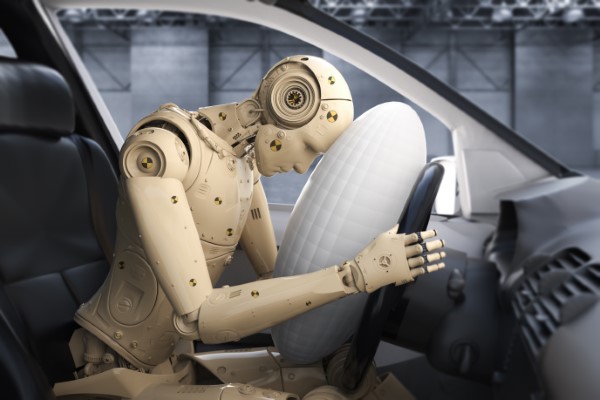
Imagine a split-second response that can mean the difference between life and death during a sudden impact. The airbag, an essential safety feature in modern vehicles, serves as a critical safeguard, providing a cushioning effect to protect occupants from severe injuries during collisions. Understanding how this vital component operates, when it requires servicing, and why timely maintenance is crucial can ensure that your car's airbag remains a reliable life saving device. How Does an Airbag Work The airbag system is an intricate network of sensors, control units, and, of course, the airbags themselves, strategically placed throughout the vehicle's interior. In the event of a collision, the sensors detect the sudden deceleration, prompting the airbag control unit to trigger a rapid inflation of the airbags. This inflation process occurs ... read more
Posted on 9/30/2023
.jpeg)
As you slip behind the wheel of your car, you embark on a journey, whether it's a daily commute or a road trip adventure. While you're focused on reaching your destination, your vehicle silently bears the brunt of your driving habits. It's a symbiotic relationship, and understanding how your actions affect your faithful ride can make a world of difference, mainly avoiding problems and repairs. 1. Neglecting Regular Maintenance Our first pit stop on the journey of destructive driving habits is neglecting regular maintenance - a surprising amount of people ignore or simply forget about regular shop visits. Think of it as skipping doctor's appointments and never getting a check-up. Your car needs periodic attention to stay healthy. Skipping oil changes, ignoring the check engine light, or neglecting tire rotations can lead to costly repairs down the road. 2. Overloading Your Vehicle Just as carrying excessive weight can strain yo ... read more
Posted on 8/11/2023
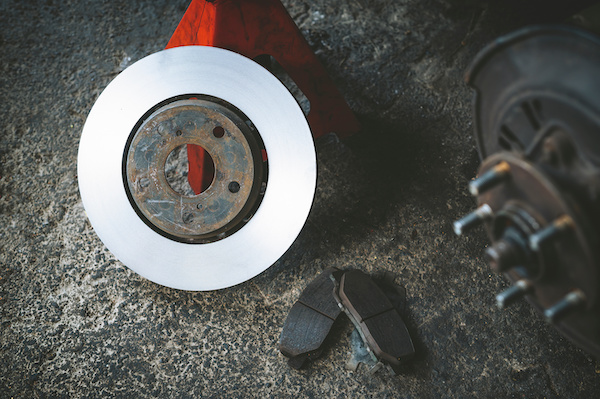
August marks Brake Safety Awareness Month, a crucial reminder of the importance of maintaining your vehicle's braking system for the safety of you, your passengers, and others on the road. Your brakes are your vehicle's most vital safety feature, and their proper operation is essential for preventing accidents and ensuring an undisturbed driving experience. Here's why brake maintenance should be a top priority this month and beyond! Stay in Control Your vehicle's brakes are responsible for bringing you to a safe stop, even in emergency situations. Regular brake inspections and maintenance help ensure that your brakes respond promptly and effectively, allowing you to maintain control and avoid collisions. Worn Brake Pads One of the most common brake issues is worn brake pads. Over time, these pads become thin, reducing their ability to grip the brake rotor and slowing down your vehicle. Regular brake inspections can detect worn pads early, preventing potential damage ... read more
Posted on 7/30/2023
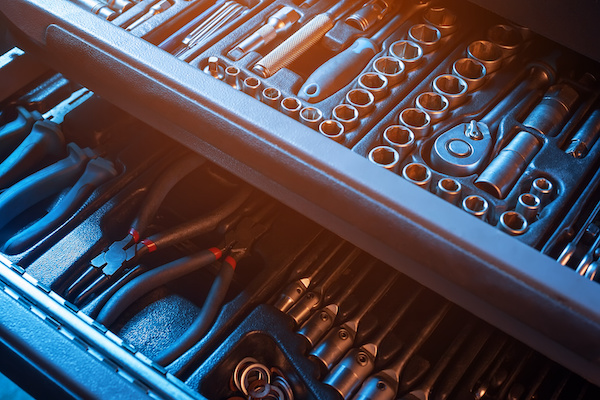
Your motor vehicle tends to break down at the most inopportune times. But there is something you can do just in case–keep a basic car repair tool kit with your spare tire. Vehicle owners don't need to be certified mechanics. However, it helps if the owner knows some basic information about their motor vehicle so that they can make quick roadside repairs. It's also a good idea to familiarize yourself with basic engine knowledge. For example, where does new oil go? How much gas does the vehicle's tank hold? Is there a manufacturer warranty? Do you know how to tighten a loose battery cable or change a spark plug? These are just a few things a vehicle owner can do with a basic tool kit. Tools For a Basic Car Repair Kit Vehicle owners should have the repair before starting to avoid going to the store for more tools. Here's our list of essential car repair tools. In places where it gets below freezing, dead batteries are a fact of life. Every motor vehicle should h ... read more
Posted on 6/30/2023
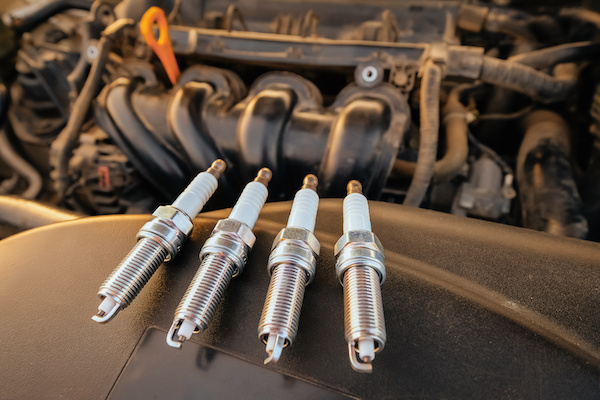
While you should acquire matching sets of spark plugs for your car, not all are universal. Spark plugs are available in several sizes and spacing, and are made from various metals. There are huge differences between spark plugs depending on the engine type. This includes the number needed, the type of core used in the center of the wire, materials used for construction, boot angles, boot types (on both ends), diameter, and length. Modern vehicles sometimes do not use traditional spark plug wires. These are the different ways to know the perfect spark plug for your vehicle. Checking your owner's manual: since each engine is designed to work under optimal tolerance, the ideal way to identify your eligible spark plug is through the manufacturer. The vehicle's handbook should include the recommended spark plug and size details. Locating the metal information tag in your vehicle: when the manual or handbook is not accessible, find the informati ... read more